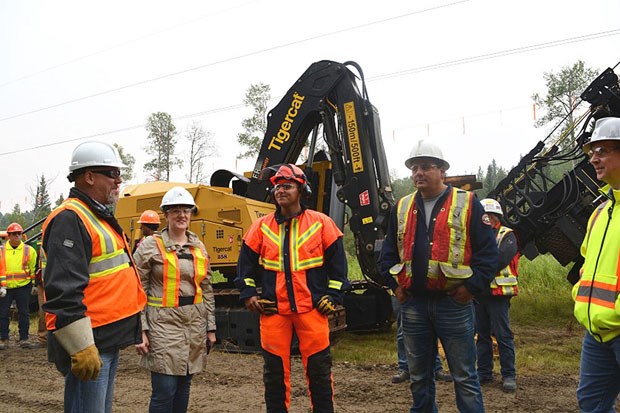Delta won’t be on the hook for any oil spills as a result of the Trans Mountain pipeline expansion.
That was the assurance from the federal government several months ago after then mayor Lois Jackson sought assurances regarding the expansion project, which recently received National Energy Board blessing, once again.
The NEB reinterred its earlier approval of the pipeline expansion with 16 additional recommendations aimed at protecting marine life on the coast. The NEB was ordered by the court to reassess the controversial project including the impact of increased oil tanker traffic on the endangered killer whale population.
The NEB said the pipeline remains in the public interest of Canada. The regulator also admitted that in the unlikely event a worst-case spill was to occur, the “environmental effects would be significant” in such a scenario, but believed the project should move forward.
In a letter to Prime Minister Justin Trudeau last summer, Jackson said, “Although it appears the federal government has implemented appropriate measures to prevent a spill from occurring and ensure adequate funding and response capacity is available, it is important that the City of Delta, or our taxpayers, do not incur any costs resulting from a potential oil spill cleanup.”
Delta sought the assurance directly from the Government of Canada which at the time announced it would purchase the pipeline from Kinder Morgan.
A subsequent response letter on behalf of the PM from MP Amarjeet Sohi, the federal Minister of Natural Resources, explained the regulatory changes to ensure sufficient funds are provided by industry to ensure adequate cleanup is conducted in the event of a spill. It includes “a world-leading suite of liability and compensation measures, addressing activities under federal jurisdiction and protecting Canadians from damages and costs associated with spills. This robust federal system is built on the ‘polluter pays’ principle, whereby the company transporting the product is responsible for the costs related to cleanup and pollution damage.”
A tanker spill of diluted bitumen would cause significant ecological damage, according to a 2016 City of Delta report, which warned that while the shipping lanes are outside of Delta’s boundaries, air quality impacts and the increased risk of oil spills, which are difficult to recover through marine spill response measures, are the main issues of concern to the community.
An oil spill could have the potential to impact Delta’s entire coastline, much of which is within the Fraser Delta Ramsar Site of International Importance, the report warned. Outlining Delta's submission to the NEB, the civic report also noted that even with the best spill response, 100 per cent of the product can’t be recovered and the residual impacts on marine and estuary environments are well documented.
The report noted there is also risk of a pipeline spill impacting the Fraser River as a large portion of the pipeline is within the Fraser River basin.
“The shipping lane is adjacent to the Roberts Bank Wildlife Management Area and the environmental sensitivity and ecological importance of this area is well known,” the report stated.
The NEB’s latest report in favour of the project was good news for the proponent with Ian Anderson, CEO of Trans Mountain and former president of Kinder Morgan Canada, in a statement saying, "It provides specific and achievable conditions under which we must operate to ensure, if approved, the project will protect the marine and terrestrial environment and communities.”
The report has now been submitted to the government which must make the final call. The project would triple Trans Mountain’s capacity to over 890,000 barrels of heavy crude oil per day.
Delta hasn’t gone so far as to formally oppose the pipeline expansion project. In a statement three years ago, Tsawwassen First Nation Chief Bryce Williams said his First Nation continues to oppose the Kinder Morgan pipeline.
A three-person environmental review panel appointed by the Trudeau government in 2016 included former Tsawwassen First Nation chief Kim Baird.



